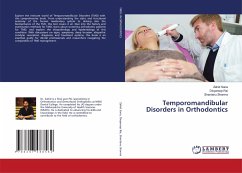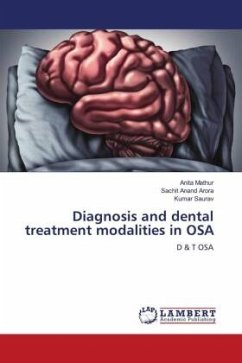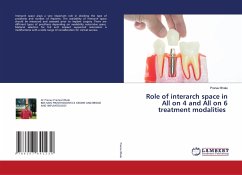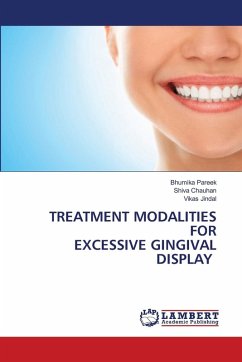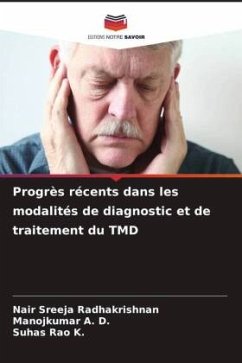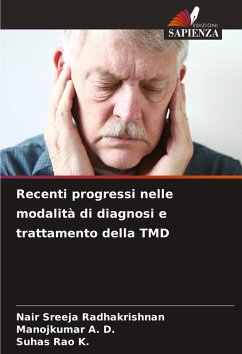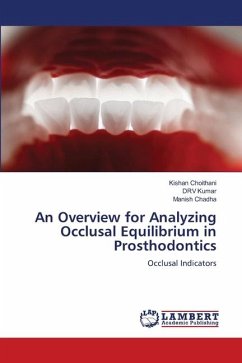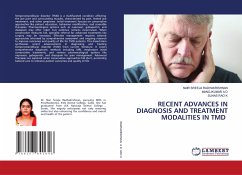
RECENT ADVANCES IN DIAGNOSIS AND TREATMENT MODALITIES IN TMD
Versandkostenfrei!
Versandfertig in 6-10 Tagen
40,99 €
inkl. MwSt.

PAYBACK Punkte
20 °P sammeln!
Temporomandibular disorder (TMD) is a multifaceted condition affecting the jaw joint and surrounding muscles, characterized by pain, limited jaw movement, and other symptoms. Initial treatment focuses on conservative approaches like patient education, behaviour modification, and reversible therapies. Pharmacological options such as naproxen, gabapentin, and diazepam may offer relief, but evidence remains inconclusive. When conservative measures fail, specialist referral for advanced treatments like surgery may be necessary. Effective management requires tailored approaches informed by comprehe...
Temporomandibular disorder (TMD) is a multifaceted condition affecting the jaw joint and surrounding muscles, characterized by pain, limited jaw movement, and other symptoms. Initial treatment focuses on conservative approaches like patient education, behaviour modification, and reversible therapies. Pharmacological options such as naproxen, gabapentin, and diazepam may offer relief, but evidence remains inconclusive. When conservative measures fail, specialist referral for advanced treatments like surgery may be necessary. Effective management requires tailored approaches informed by comprehensive assessment and ongoing research to improve outcomes and quality of life for TMD patients. This dissertation synthesizes recent advancements in diagnosing and treating temporomandibular disorder (TMD) from current literature. It covers comprehensive diagnostic methods including MRI, emphasizes initial conservative treatments, and reviews pharmacological options like naproxen, gabapentin, and diazepam for pain management. Advanced therapies are explored when conservative approaches fall short, promoting tailored care to enhance patient outcomes and quality of life.





